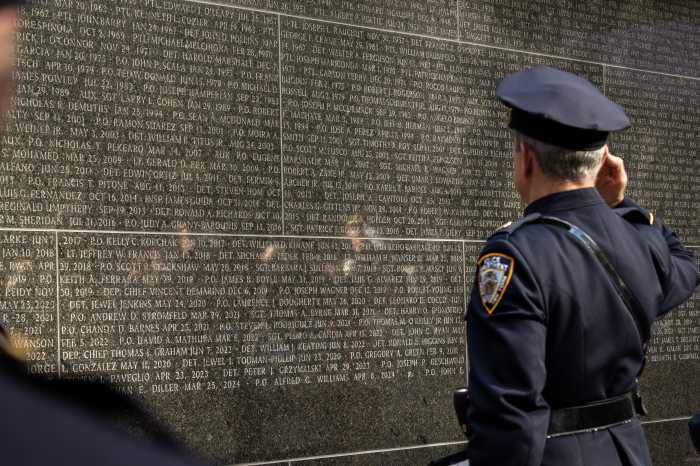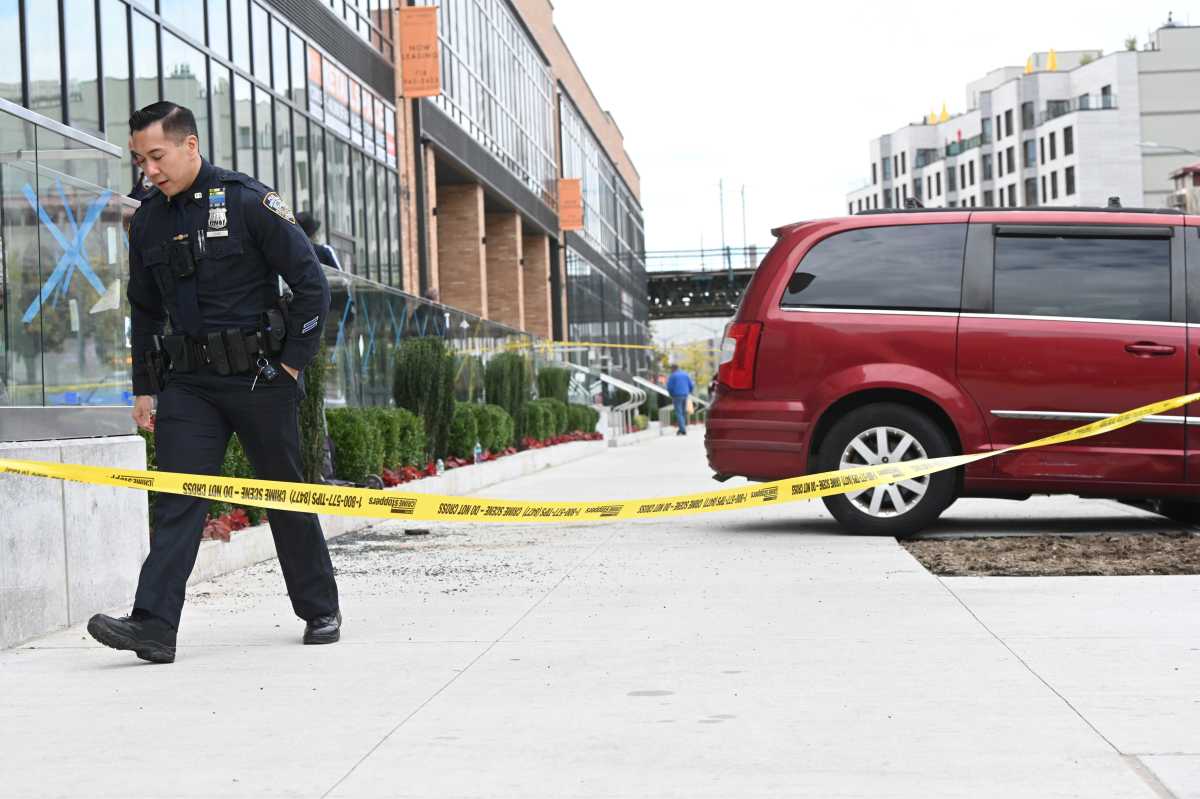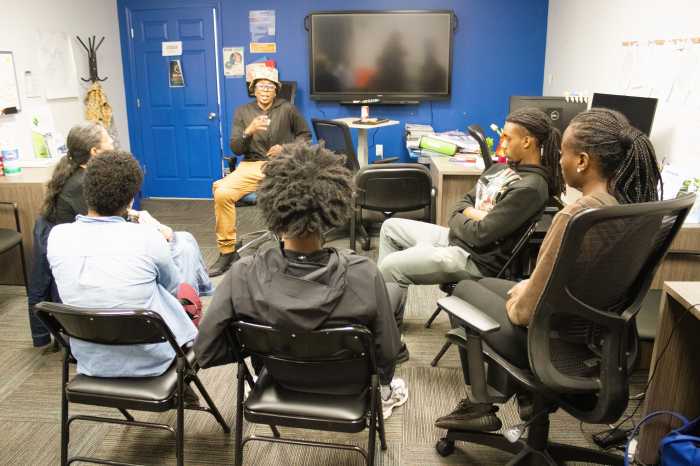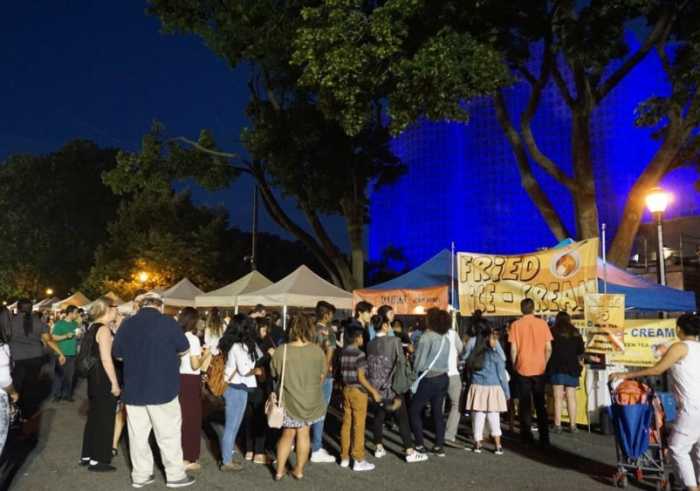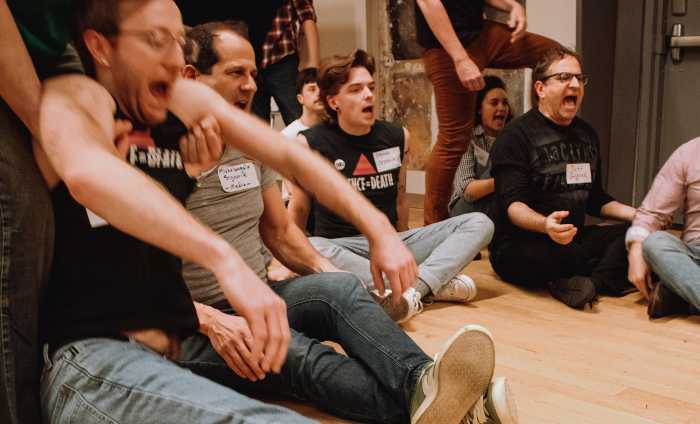Out with the Parks Enforcement Patrol, in with security ‘ambassadors’
BY DUSICA SUE MALESEVIC | In a neighborhood that has few street crimes but many quality-of-life issues, the Battery Park City Authority’s decision last week to replace the city’s Parks Enforcement Patrol officers with private security guards that have zero enforcement powers has infuriated the community.
In a packed room, the long and contentious meeting of Community Board 1’s Battery Park City Committee on Nov. 2 was punctuated by angry outbursts from many in the community who once again felt left out of the B.P.C.A.’s decision-making process.
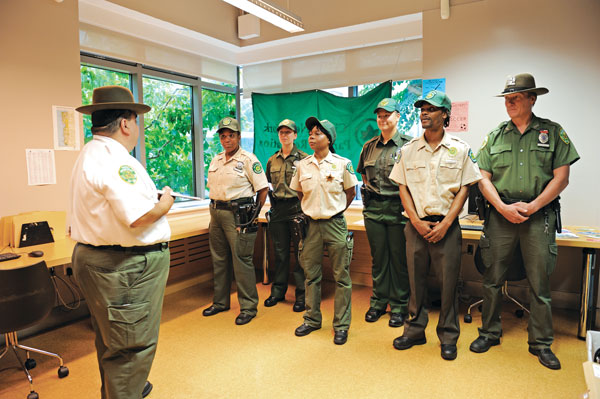
The Battery Park City Authority plans to dramatically reduce the role of the Parks Enforcement Patrol and hire private security guards instead.
“It just seems like a police state,” said Paula Galloway, who runs the Battery Park City Dog Association.
The authority announced at its Oct. 27 meeting that P.E.P. would have a “diminished role” board in local security and approved a $2.1 million contract with AlliedBarton Security Services. The authority is nearing the end of a three-year contract with the city to provide security in and around the area’s parks.
Bringing in AlliedBarton is a way to extend security patrols beyond the neighborhood’s green spaces — the only areas where P.E.P. can operate — and put 30 percent more boots on the ground in the neighborhood at roughly the same cost as the B.P.C.A. now pays the city for the park patrols, Benjamin Jones, the authority’s vice president of administration, said at the board meeting.
AlliedBarton will report to Jones.
At the CB 1 meeting, three AlliedBarton representatives tried to present their plan for the neighborhood, which they will divide into three zones and will be patrolled on foot and on bikes by unarmed “ambassadors,” as they have been dubbed, wearing bright yellow uniforms.
John McArdle, AlliedBarton’s regional operations manager, was heckled and repeatedly interrupted by residents during his presentation.
“The idea is to be brightly visible and extremely engaging,” he said when describing the guards’ fluorescent yellow uniforms.
To which someone in to audience retorted: “It’s not a store. Is this Macy’s?”
Many particulars, such as how much the “ambassadors” will be paid and the exact number of them on patrol at any given time, were not nailed down. This was put down to the contract not being signed yet.
But Kevin Francis, the company’s business-development specialist, said that at peak times there may be 57 guards spread over three shifts for a day. Currently, there are 25 green-clad P.E.P. officers assigned to the neighborhood in rotating shifts, according to the B.P.C.A., and that amounts to about seven or eight P.E.P. personnel on patrol at any given time.
McArdle explained the guards are trained to enter everything they do — incident reports, take photos — on handheld devices, and each one would carry a phone with a tracking device.
“That way, we can actually quantify what’s going on and where,” he said.
This electronic tracking will allow data analysis — similar to the CompStat system used by the NYPD — to assess where there may be issues of concern, said Robin Forst, vice president for external relations for the B.P.C.A.
P.E.P. officers can issue summonses, make arrests, and use force if necessary. They do not carry guns, but do carry handcuffs, batons, and mace.
Joe Puleo, president of Local 983, the P.E.P.’s union, said last week, “Taking [P.E.P.] out and replacing them with private security — who make $12 an hour and have no jurisdiction — is ludicrous to say the least.”
Puleo pointed out that P.E.P. officers have patrolled the neighborhood’s parks since 1992.
In the past, some residents have complained that P.E.P. officers can be less than helpful, and are no help at all with problems away from their grassy jurisdictions, but recently relations have been good.
“Things right now with P.E.P. are on an up note. That has not always been the case,” said Martha Gallo, the only B.P.C. resident on the authority’s board.
The authority did not explain why it was reducing P.E.P.’s role in the area’s security. But Forst said the neighborhood has seen a steep increase in foot traffic in recent years, owing to more residents, customers of new commercial and retail tenants, and tourists visiting the nearby 9/11 Memorial, creating the need for “an increased and highly visible security team.”
Frustration at the B.P.C.A.’s decision kept boiling over during the meeting, with accountability emerging as the common theme.
“They keep making decisions without us,” said committee member Tom Goodkind, pointing out that P.E.P. officers are responsible to the public, whereas AlliedBarton is only responsible to who pays.





